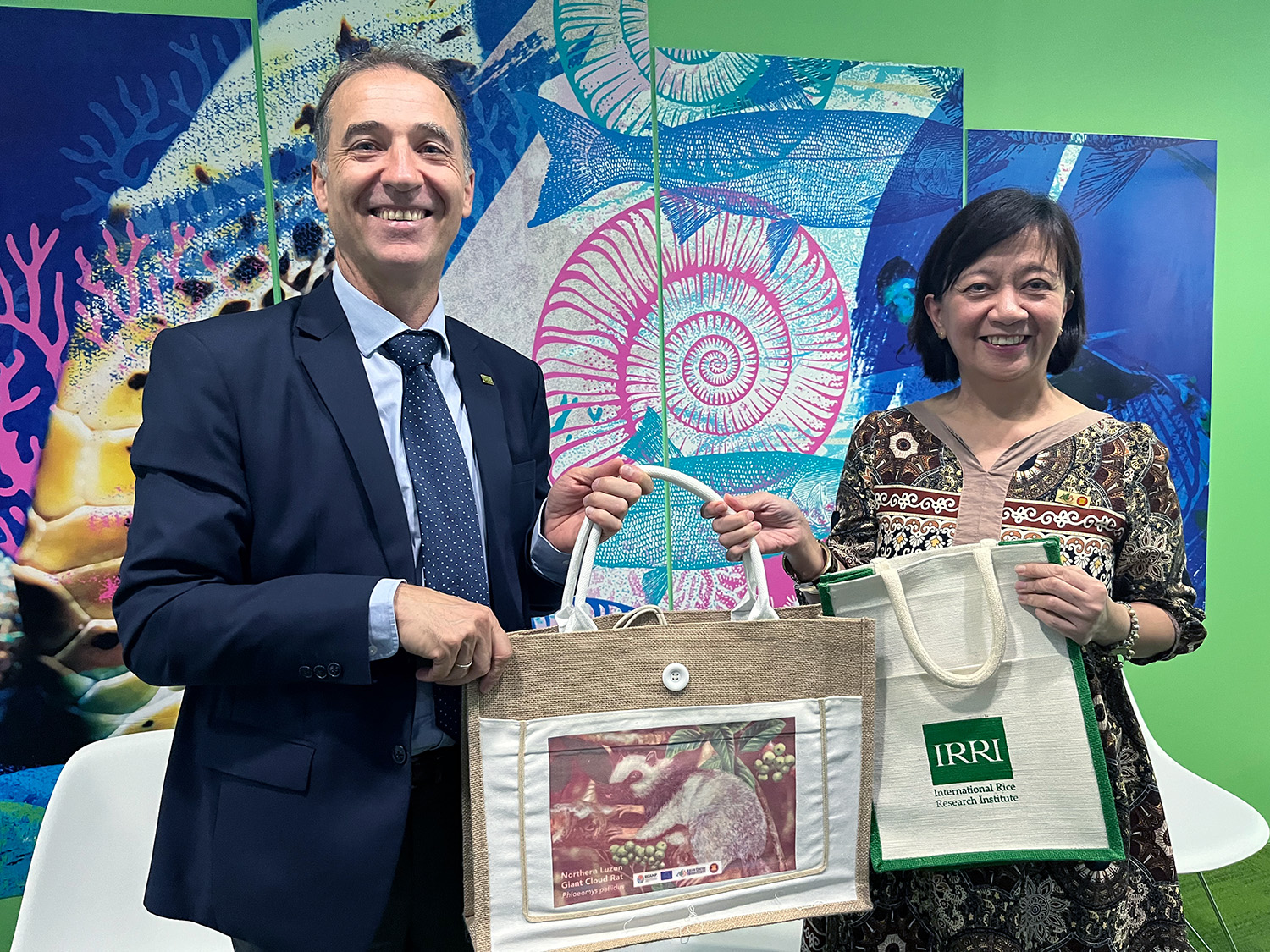IRRI’s Director Jean Balié and Deputy Director General for Strategy, Engagement and Impact, Joanna Kane-Potaka recently met with ASEAN Centre for Biodiversity (ACB) Executive Director Dr. Theresa Mundita S. Lim to lay the groundwork for more active partnerships toward the promotion of agrobiodiversity in the region.
Most recently, ACB has contributed significantly to two CGIAR-IRRI Innovate for Food Program intervention packages that are focused on enhancing ASEAN agrobiodiversity use and landscape biodiversity as well as climate neutrality and circular agriculture.

Agriculture, fisheries, and forests agrobiodiversity, including genetic diversity, of animals, plants, and microorganisms used directly or indirectly for food and agriculture is critical to nutrition security, ecosystem service provision, and the resilience of agroecosystems. Yet, the ASEAN region continues to lose agrobiodiversity, and associated traditional knowledge at an alarming rate.
“Indeed, there is poor understanding at all levels of society of what agrobiodiversity actually is and its critical role in initiatives that promote food security and nutrition, nature-positive solutions, sustainable and circular agriculture, reduction of agrochemicals use, and carbon neutrality. We acknowledge and value the knowledge and critical roles organizations like ACB have toward addressing this issue,” Balié said.

To this end, ACB and IRRI are exploring conducting joint seminars between and among their experts and scientists to discuss and identify joint activities in the areas of rice landscapes and biodiversity.
Beyond the regional program and cooperation between the two institutions, the meeting was also intended to explore ways to increase synergies with the Southeast Asian Regional Center for Graduate Study and Research in Agriculture (SEARCA) and University of the Philippines - Los Baños. ACB also expressed openness to co-chair a scientific session with IRRI on agrobiodiversity in rice landscapes in the upcoming 6th International Rice Congress happening in Manila, Philippines on 16-19 October.
“It is so important we do not work only in our expert silos. Today we talked about solutions that are a win for biodiversity and a win for agriculture, specifically, rice systems. There are often trade-offs but this is the role of science and our own commitment to ensure we find a win-win,” Kane-Potaka said.

